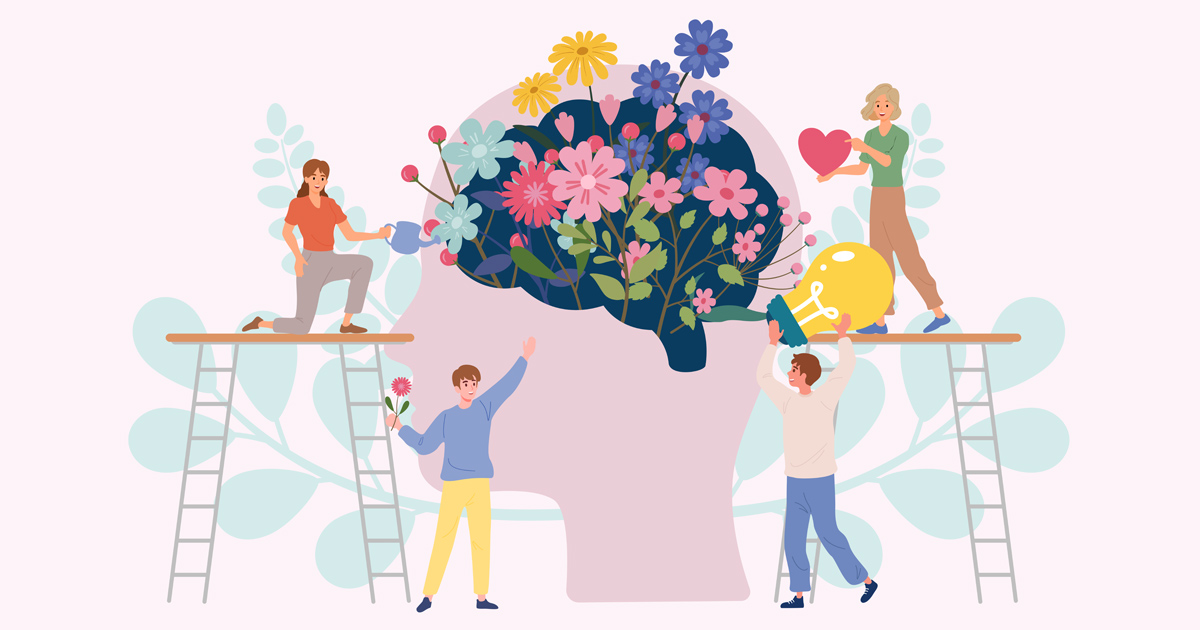Seasonal Affective Disorder (SAD), known more commonly as ‘winter blues’ can affect us all to some extent or another. Business Development Manager, Lesley Turner, explains more about the causes and suggests ways to help guard against them.
The winter blues is very similar to depression. SAD shares a number of the same symptoms as depression, but it occurs during the winter months. Symptoms such as, persistent low mood where we are not getting pleasure from the things that would normally give us pleasure. We may be experiencing negative thoughts, and we may be choosing to withdraw from the company of others. We may also feel irritable or, rather than low mood, we might feel numb.
As well, we may also notice changes in our sleep patterns – sleeping more or less than usual. Our eating habits may change and things that would normally be easy for us, such as brushing our teeth or deciding what to wear can become a struggle.
The winter blues affects us because humans have evolved to be outdoors in nature, surrounded by sunlight and natural environments. So, it’s no surprise that being outdoors in nature under sunshine is beneficial and boosts our positive mental health. We feel good, and more energised when we’re outdoors experiencing sunshine. It boosts our positive emotions.
This is important because positive emotions don’t only feel good, they do us good too. We build our psychological resources as a result of emotions such as optimism. So, in winter we have fewer opportunities to enjoy being outdoors in sunshine and connecting with nature. Which means we miss out on all of those physical and psychological benefits.
So how do we protect ourselves on those rainy days when it’s pouring outside?
Start with the basics. Prioritise sleep. Develop a good sleep routine which includes reducing your use of phones and TVs in the hour before bed, lowering the temperature in your bedroom,19 degrees is good, and making sure you have blackout curtains. These things can help you get a good night’s rest. Good nutrition is also crucial. Prioritising nourishing foods helps your mental wellbeing.
Once you’ve sorted those basics, you can add other things. Such as increasing your diet of positive emotions. Positive emotions are good for us as they help us build psychological resources. So, do more of the things that bring you pleasure. It could be something as simple as watching funny videos on Instagram, painting and drawing, or baking. Whatever it is, prioritise it. It’s really useful to remind ourselves that we can slow down and prioritise pleasure in some ways. Find out what works for you and increase it.
Find meaning
Next, find ways to increase your sense of engagement with your life. This involves your hobbies and pastimes. As children we do all sorts of things, and we’d play a lot. We would try new things. As an adult it’s easy to lose sight of our sense of play and fun. The advantage of doing these activities is that it can put you in a flow state or ‘in the zone’. That’s moments where you become totally absorbed in the task and you are really enjoying what you’re doing. It’s giving you a hit of pleasure. Science shows increasing your moments of flow in your day-to-day life can boost your mental health.
Another important factor is positive relationships. It’s so important to nurture your relationships as it’s one of the fundamental pillars of wellbeing. Do things such as calling a friend and having a conversation with them or spending time with a loved one, but do something to prioritise your relationships.
Finding activities that boost your sense of meaning can also be beneficial. Things such as helping someone in need, doing some volunteering or just helping a colleague at work can boost your wellbeing too.
Setting goals for yourself that align with your values and what matters the most to you can be beneficial. They don’t have to be grand. Small goals such as incorporating a 10-minute walk in your lunch break is fairly simple but could benefit you a lot. So having positive goals going forward will help increase your sense of optimism.
It’s not unusual for people to feel down when it’s dark and the weather is cold and miserable. However, by following the advice above, and being a bit kinder to ourselves, we can make it through to spring and the longer days without suffering too much.
For more information on SAD and how to manage it visit the MIND website.


